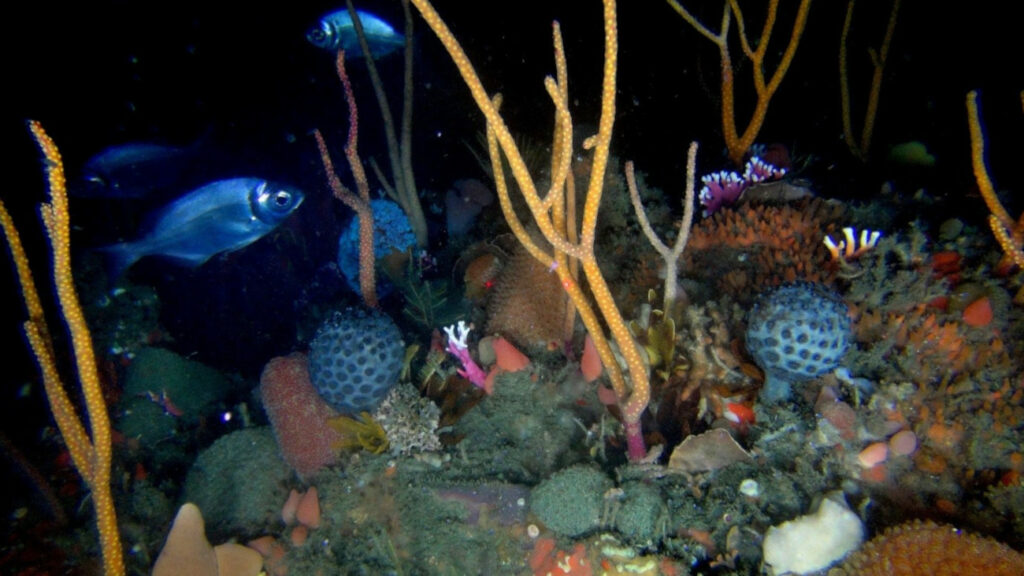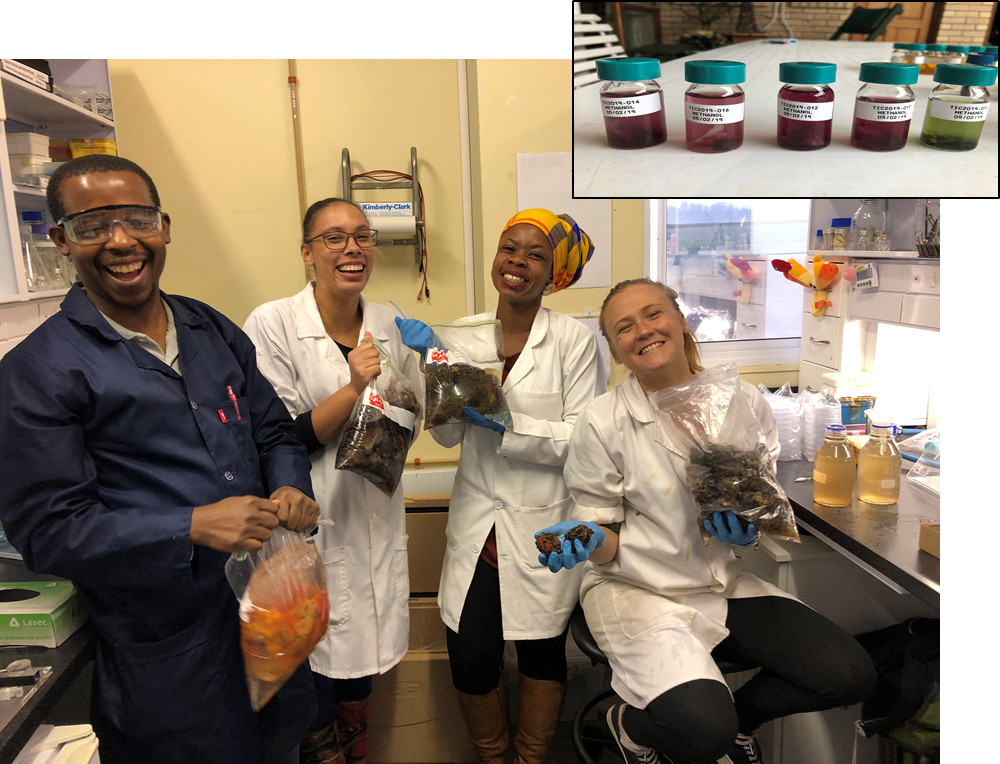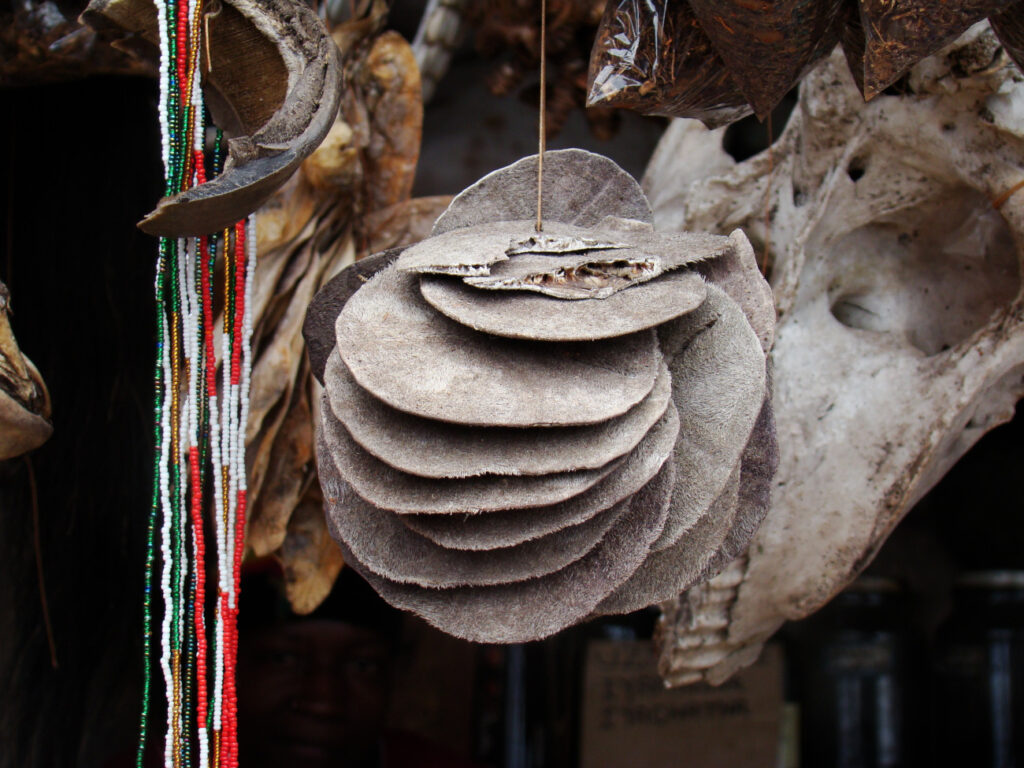A new analysis on the Ocean Genome was recently released, commissioned by the High Level Panel for a Sustainable Ocean Economy, an initiative that brings together world leaders who recognize that economic production and ocean protection must be mutually supporting if we are to “produce, protect and prosper”. The so-called Blue Paper explores the current understanding of genetic diversity within the oceans, the benefits it provides in the context of a changing world and the concomitant threats posed to such diversity. The report identifies opportunities for improved conservation of the ocean genome and more sustainable and equitable use of these genetic resources.
As an interdisciplinary effort, the One Ocean Hub (OOH) is ideally poised to take forward some of this thinking and provides an exciting opportunity to consider marine biodiscovery in new and interesting ways, to bring different knowledges together and to share experiences of co-producing knowledge and best practices for access and benefit sharing (ABS) in the context of marine genetic resources and associated traditional knowledge. Blue Paper lead author, Rachel Wynberg, contributing author, Kerry Sink, and Hub collaborators Rosie Dorrington and Mat Upton reflect on the report’s recommendations and ways in which we can respond by providing a science-policy platform for action.
Biodiscovery, meaning the exploration of biological material for commercially valuable genetic and biochemical properties, offers important opportunities to address COVID-19 and related health crises. With escalating global death and infection rates, there is a critical need to produce rapid and reliable tests, discover effective antiviral drugs and develop vaccines – all of which must be made available to all countries irrespective of their development status. The ocean as a rich resource of genetic material and associated metabolic potential, can potentially provide some solutions.

Already, thermostable enzymes produced by remarkable hydrothermal vent bacteria, are being used in virus test kits for COVID-19. Because of the diversity of marine environments, many marine plants, animals, fungi and microbes have evolved to produce commercially interesting small molecules, with significant biological activity. Their potential as leads for the development of new drugs is 2.5 times the industry average. However, realising this potential means not only getting the science right, but also dealing with a complex array of legal, ethical and conservation issues, ranging from questions about access to and ownership of genetic material, through to concerns about equitable research partnerships, traditional knowledge protection, benefit sharing and the increasing use of openly accessible genetic sequence data (“digital sequence information” (DSI)).
The genetic component of biodiversity is one of the most neglected aspects of biodiversity with most biodiversity assessments focused at the species and ecosystem levels. At the same time, there is an unbalanced relationship between low- and middle-income countries that are home to most marine biodiversity and higher-income countries, which possess the research capacity, technology, infrastructure and finances to develop marine biotechnology. These countries also frequently lack the resources to undertake the research themselves or to access and use the rapidly growing databases of genetic sequence data.
The One Ocean Hub is seeking to develop new international collaborations to address these challenges and enable more comprehensive and inclusive molecular research initiatives, assessments and management efforts. We are working to pilot the use of novel and traditional molecular techniques in ecosystem classification and assessment, to track human impacts on genetic biodiversity and to deepen knowledge to fairly secure the ocean genome for current and future generations. New plans are underway to better consider genetic diversity in Marine Protected Area design and management and in work to assess, articulate and improve equitable benefits from biodiversity.

INSERT: CHEMICAL EXTRACTS OF T. PEDUNCULATA TISSUE DESTINED FOR METABOLOMICS ANALYSIS TO CHARACTERISE SECONDARY METABOLITE PRODUCTION
In an exciting opportunity to strengthen the science-policy interface of biodiscovery, OOH partners Mat Upton and Rosie Dorrington are leading a new multilateral initiative to address the threat of emerging antimicrobial resistant bacterial pathogens. Their research aims to harness the extraordinary chemical diversity of marine-derived natural products as lead compounds for the development of new classes of antibiotics. The focus is on exploring the antimicrobial potential of marine microbes found in deep sea sediments and associated with marine invertebrates and tunicates endemic to South Africa and the UK. This initiative will generate a significant biological, chemical and genetic resource with associated genomic and metabolomics datasets that will support future biodiscovery programmes. It also provides an ideal opportunity to begin conversations around equitable benefit sharing of marine genetic resources, access to and ownership of data generated by the project and management of the sharing of unpublished knowledge.
Conceptualising the science-policy link between benefit sharing and the use of so-called digital sequence information will be especially useful given the prominence of this issue in international biodiversity negotiations and Intergovernmental Conference on a new treaty on marine biodiversity of areas beyond national jurisdiction (the so-called “BBNJ process”). It will provide an excellent opportunity to think through DSI and ABS in practice. This will also tie strongly to legal and policy work already underway under the Hub, that explores how international and policy regimes for marine biodiscovery can support, rather than hinder, international cooperation and fair research partnerships for more effective conservation and sustainable use of the ocean, as well as for the protection of everyone’s human right to health.
We are also chartering new territory in exploring links between marine biodiscovery, local ecological knowledge and the use of the ocean for traditional medicine, magic and rituals. Research in South African markets has catalogued the use of more than 70 marine species for traditional medicine and magic, and this work will be expanded, alongside ethnographic studies along the South African coast. Those of you who have had the privilege of experiencing Lalela Ulwande, the OOH empatheatre production, may remember some content in this regard. We are building on this work and entering into new collaborations to embed social justice and fair and equitable benefit-sharing in our research.
Although much of this work is currently centred in South Africa, the aim over time is to bring different partners and countries together, along with legal and intellectual property expertise, to provide support on ethical and ABS issues, and to stimulate a wider community of practice on these questions. Please do contact Rachel Wynberg: rachel.wynberg@uct.ac.za if you would like to participate in this initiative or if you have any comments or questions.
